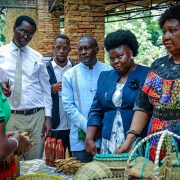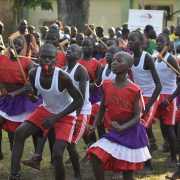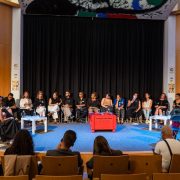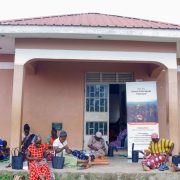Cultural diversity is seen at CCFU as a driving force of development, not only for economic growth, but also as a means of leading a more fulfilling intellectual, emotional, moral and spiritual life. If cultural diversity is an indispensable asset for poverty reduction and the achievement of sustainable development, this however requires acceptance, recognition and protection.
1. Working with Cultural Institutions
Uganda’s law currently defines cultural institutions as “cultural” entities, barred from engaging in political activities. Yet, our cultural leaders, because of their influence and legitimacy, engage in work that shapes the communities that identify with them. When addressing issues of Culture and Governance, CCFU therefore sees cultural leaders as essential partners.
The Foundation is working with cultural leaders at both strategic and practical levels. With regard to the former, CCFU has worked with the leaders of cultural institutions and with the secretariat of the Kings’ and Cultural Leaders’ Forum to develop a statement as part of the Citizens’ Manifesto process in the 2016 elections. Previously, clan leaders have been helped to develop their charters. At a more practical level, relevant cultural institutions have been assisted to develop guidelines with regard to oil and gas companies’ activities and to develop specific projects to address environmental and cultural issues in the oil producing and prospecting region.
2. Generating knowledge and supporting initiatives for peaceful co-existence
From 2009 to 2014, CCFU played a coordinating role for the “Promoting Pluralism Knowledge Programme” (PPKP), an international project bringing together several organisations, initiated by the Kosmopolis Institute and the Humanist Institute for Cooperation with Developing Countries in the Netherlands. This initiative was triggered by concerned civil society organisations in the South that signaled increasing forms of intolerance manifested in religion, ethnic affiliation, nationalism, social class, gender and other identities. Working with five universities and eight National and regional NGO networks, the PKP in Uganda provided a missing but much needed platform for the public to engage in conversations that address our differences and builds an equitable society. For more information, see these resources.
In addition, CCFU works to promote inter-cultural dialogue “on the ground” – as exemplified by its activities in the Rwenzori region.







